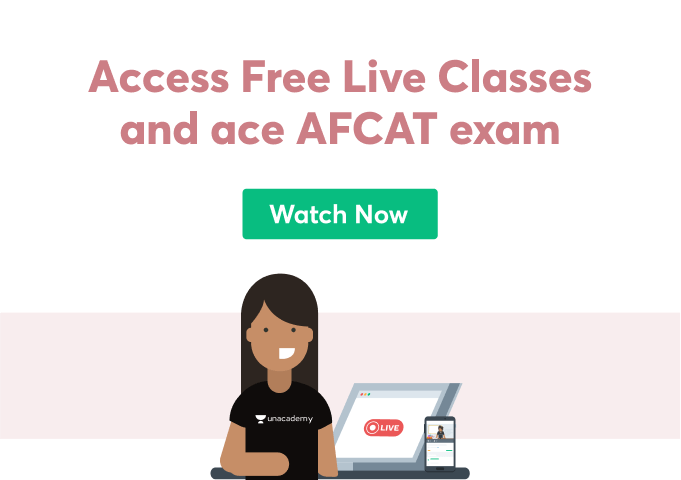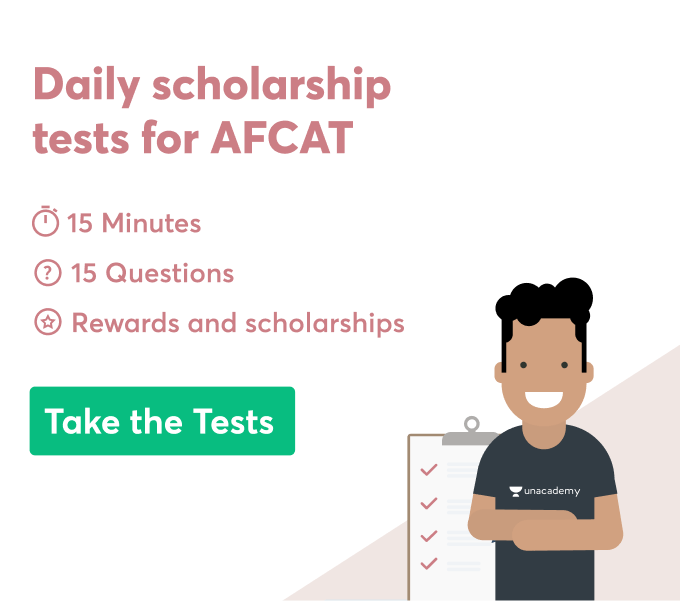AFCAT Salary
The Indian Air Force offers qualified applicants high wages in technical or non-technical branches, generous allowances, and various benefits. The shortlisted candidates also receive several incentives and subsidies in addition to their monthly AFCAT salary.
For their training, candidates who pass the AFCAT exam enroll in the Indian Air Force Academy. Cadets receive a salary of Rs. 56,100 per month while training (starting pay at Level 10). For cadets in the aviation and technical branches, the training takes 74 weeks, whereas it takes 52 weeks for cadets in the non-technical departments. During the final year of the training period, the stipend is paid.
AFCAT's Salary Structure
When a flying officer receives a commission, the following pay and benefits are applicable:
| AFCAT’s Salary Structure | ||
| Rank | Flying Officer | |
| Level | 10 | |
| Pay as per 7th CPC pay matrix | Rs 56,100 – Rs 1,77,500 | |
| Pay for Military Service | 15,500 rupees per month. | |
Annual Package and In-hand Pay for AFCAT Salaries
For officers in various branches of the Air Force, there are distinct pay scales.
The pay scale for Air Force officers is shown in the table below, broken down by branch.
| IAF Branch | IAF Salary |
| Flying Branch | Rs 85,372 |
| Ground Duty Technical Branch | Rs 74,872 |
| Ground Duty Non-Technical Branch | Rs 71,872 |
The following are the different branches of IAF officers’ annual remuneration packages:
| IAF Branches | The Annual Salary Package |
| (Technical) Ground Duty. | Rs 7- Rs 9 lakhs |
| (Non-Technical) Ground Duty. | Rs 7- Rs 9 lakhs |
| Flying Branch | Rs 8- Rs10 lakhs |
AFCAT Salary Perks and Benefits
Air Force officers are also entitled to different allowances. Flying Allowance is one of the perks available to IAF Flying Branch Officers and Technical Branch Officers. The allowances vary depending on the location and nature of duty.
Field Area Allowance, Test Pilot and Flight Test Engineer, Special Force, Special Compensation (Hill area), Area, Island Special Duty, or Remote Locality Allowance are among the payments.
Other than the allowances stated above, here is a list of additional advantages.
- Insurance: Rs. 75 lakhs for air force personnel, Rs. 85 lakhs for air force personnel (pilots).
- A computer loan, a conveyance loan, and a house building loan
- Placement cell: Assists retired officers in finding civil jobs.
- Medical benefits are available to all Air Force officers and their families.
- Scholarships and Welfare: Air Force Wives Welfare Association grants (AFWWA).
- After retirement, pension, insurance, and medical benefits are available (lifetime access).
- Educational benefits include M.Tech from IIT and BHU-IT (for officers in the Technical Branch), study leave (up to 24 months), and affiliations with IGNOU.
- Other advantages include accommodation; annual leave of 60 days and casual leave of 20 days per year; travel concessions; institute and mess membership, school facilities; rail concessions; secured camp life; CSD facilities, and recreational and sports facilities.
What is the AFCAT Exam?
The Indian Air Force administers the Air Force Common Admission Test (AFCAT) to select Class-1 Gazetted Officers for Flying and Ground Duties (Technical and Non-Technical). The AFCAT exam is given twice a year, in August/September and February. Applications are made accessible in December and June. Through AFCAT, candidates may submit applications for the Flying Branch, the Technical Branch, and the Ground Duty Branch of the IAF. However, there are various eligibility standards for specific branches.
- Cadets are commissioned as flying officers in the Indian Air Force after finishing their training.
- After three years of service, the promotion to Flying Lieutenant for flying officers is contingent upon passing a departmental test.
- After six years of service, one gets promoted to squadron leader.
- Vacancies and officers’ performance are considered while promotions to higher ranks.
- To be promoted and paid similarly to Indian Air Force officers, technical officers who are engineers are given two years’ seniority.
- All officers must take the C test, which includes general knowledge questions and posts about departmental promotion and rank advancement themes.
 Profile
Profile Settings
Settings Refer your friends
Refer your friends Sign out
Sign out






